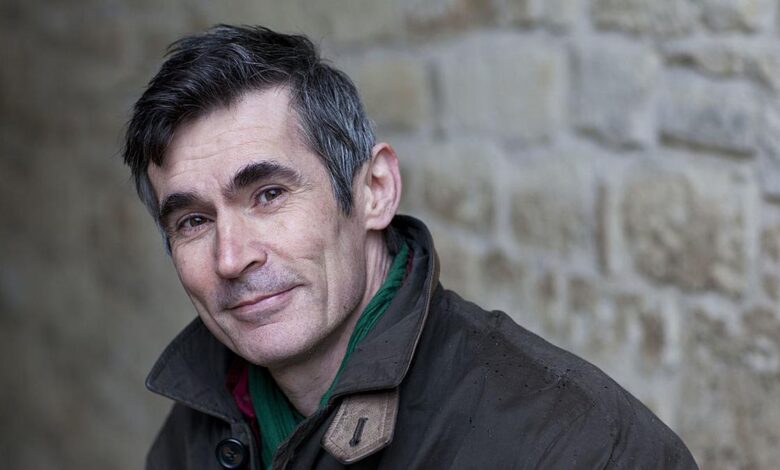Interview | Andrew Miller on his Booker-shortlisted novel, The Land in Winter

Author Andrew Miller
| Photo Credit: Getty Images
Two-time Booker Prize nominee Andrew Miller plucks on words as if they are strings on a guitar. In almost all his works, rich and taut emotions linger long afterwards. In this year’s Booker-nominated title, The Land in Winter (published by Sceptre), Britain has turned gelid in one of its longest and coldest winters in history.

It is 1962, and the cracks in local doctor Eric Parry’s marriage start to appear while his pregnant wife Irene fights listlessness by planning a Boxing Day party. She finds company in her vivacious neighbour, Rita Simmons, whose past troubles not just her but also her husband, Bill, a man who, halfway through his Oxford degree, abandoned it to marry a showgirl and become a farmer. Miller discusses why this book is somehow about a time when his parents were young, like the couples in the novel, and what it means to revisit those early years. Edited excerpts:
As the title suggests, did the book start with an atmosphere or a mood?
The landscape resembles places from my early childhood when my father, a doctor and a Scotsman, went down south to work as a general physician in the countryside near Bristol. In that way, it was about reaching back into my own life and into my parents’ youngish married lives. I was just two then, and so it was like reconstructing something at the far edge of what I couldn’t have directly known. It also has a fairytale-like quality, the quality of a world changed suddenly by snow. Many readers pointed out that it had an element of COVID-19, which I felt too. It is probably a combination of these memories and a world that becomes white.

A boy carries groceries through the snow in Princetown, England, during the winter of 1962-63.
| Photo Credit:
Getty Images
What about the 1960s compelled you to set your novel in that time?
The early 1960s in Britain were a transformative moment. The Beatles are touring small clubs, and the Rolling Stones and David Bowie are teenagers playing in each other’s bedrooms. It’s all cooking up questions about the lives women should lead. Television is new, and there’s a debate over what television should do. Should it be educational or a thing for laughs? Another thing was sexuality and sexual freedoms, which dramatically changed later in the 1960s. The pill, too, arrived in Britain then, but was only for married women, which Eric, in the book, gives to his mistress. This period is when everything is about to go, but hasn’t quite gone yet.
How personal would you call this book?
I felt a sense of connection to my parents through the book, even though it wasn’t their story. Like Eric, my father was also a doctor, and many circumstances I recall were related to our cottage. Irene leans into my mother’s life, as many middle-class women lived boring lives and couldn’t attend university, which was a lifelong regret for my mother. It was my mother’s anecdote, the proverbial egg, that hatched this book. She told me about going over to the farm one day with my father because the woman on the farm needed help. The doctor, my father, went, but my mother accompanied him. I don’t know what she intended by the story, except that they were together, and it showed her idea of how their life might have been. This emergency is what I describe towards the book’s end.

You are known for drawing compelling characters with an ambivalent quality.
We are constantly ambivalent creatures who move around the world with inadequate theories about ourselves and the world. The book captures this idea and possibly hints at the gap where one can be free of these theories and live openly, which I find interesting. I want that for these characters, in their thoughts and actions. For example, Eric, a good doctor and compassionate man, also does unpleasant things to his wife. My idea is that if you write about the muddiness of their lives — morally or psychologically — it opens up a sense of nuance and complexity. One feels one can live in it.
How does it feel making the Booker shortlist for the second time?
Well, the first time could just be a fluke! The second time suggests I have some idea of what I’m doing.
The interviewer is a freelance writer and journalist with bylines in leading international and Indian publications.
Published – October 03, 2025 06:15 am IST
Source link

